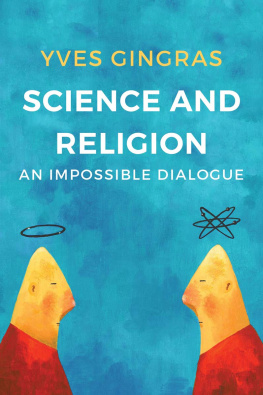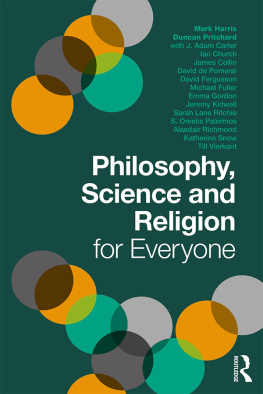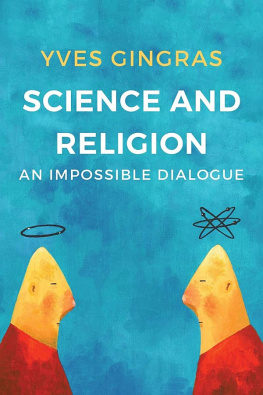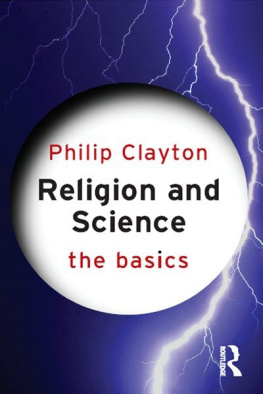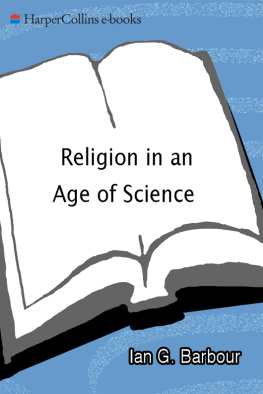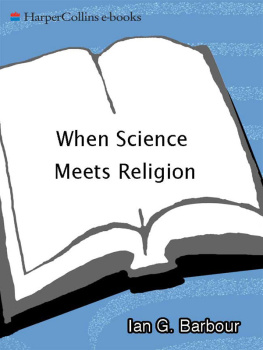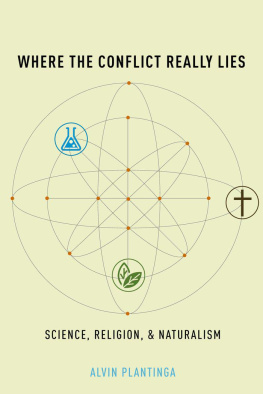Bibliography
Alcoff, Linda and Elizabeth Potter, eds. Feminist Epistemologies. New York: Routledge Press, 1993.
Arendt, Hannah. Between Past and Future: Eight Exercises in Political Thought . New York: Penguin Books, 1968.
. Breakdown of Authority. Lecture given at New York University, New York, N.Y., 1953. The Hannah Arendt Papers at the Library of Congress . Series: Speeches and Writings File, 1923-1975. (http://international.loc.gov/ammem/arendthtml/arendthome.html).
. The Concept of History: Ancient and Modern. In Between Past and Future: Eight Exercises in Political Thought , 41-90. New York: Penguin Books, 1968.
. The Conquest of Space and the Stature of Man. In Between Past and Future: Eight Exercises in Political Thought , 265-280. New York: Penguin Books, 1968.
. The Crisis in Culture: Its Social and Its Political Significance. In Between Past and Future: Eight Exercises in Political Thought , 197-226. New York: Penguin Books, 1968.
. A Daughter of Our People: A Response to Gershom Scholem. In The Portable Hannah Arendt , edited by Peter Baehr, 391-396. New York: Penguin Books, 2000.
. The Human Condition . Chicago: University of Chicago Press, 1958.
. Labor, Work Action. In The Portable Hannah Arendt , edited by Peter Baehr, 167-181. New York: Penguin Books, 2000.
. Lectures on Kants Political Philosophy . Edited by Ronald Beiner. Chicago: University of Chicago Press, 1982.
. The Life of the Mind . New York: Harcourt Brace Janovich, 1977.
. Men in Dark Times . San Diego: Harcourt Brace & Company, 1968.
. On Hannah Arendt. In Hannah Arendt: The Recovery of the Public World , edited by Melvyn H. Hill, 301-339. New York: St. Martins Press: 1979.
. On Humanity in Dark Times, Thoughts about Lessing. In Men in Dark Times , 3-31. San Diego: Harcourt Brace & Company, 1968.
. On Revolution . New York: Viking Press, 1962.
. On Violence. In Crises of the Republic , 103-198. New York: Harcourt Brace Janovich, 1969.
. The Origins of Totalitarianism . Cleveland, OH: Meridian Books, 1958.
. Philosophy and Politics, Social Research 57, no. 1 (Spring 1990): 73-103.
. Rahel Vernhagen: The Life of a Jewess , first complete edition. Edited by Liliane Weissberg. Translated by Richard and Clara Winston. Baltimore, MD: Johns Hopkins University Press, 1997.
. Reflections on Little Rock. In The Portable Hannah Arendt . Peter Baehr, editor, 231-243. New York: Penguin Books, 2000.
. A Reply to Critics. In The Portable Hannah Arendt , edited by Peter Baehr, 243-246. New York: Penguin Books, 2000.
. A Reply to Eric Voegelin. In The Portable Hannah Arendt , edited by Peter Baehr, 157-164. New York: Penguin Books, 2000.
. Rosa Luxemburg: 1871-1919. In Men in Dark Times , 33-56. San Diego: Harcourt Brace & Company, 1968.
. Thinking and Moral Considerations: A Lecture. Social Research 38, no. 3 (Autumn 1971): 417-446.
. Tradition and the Modern Age. In Between Past and Future: Eight Exercises in Political Thought , 17-40. New York: Penguin Books, 1968.
. Truth and Politics. In Between Past and Future: Eight Exercises in Political Thought , 227-264. New York: Penguin Books, 1968.
. Understanding and Politics. In Essays in Understanding: Formation, Exile, and Totalitarianism , edited by Jerome Kohn, 307-327. New York: Schocken Books, 1994.
. Walter Benjamin, 1892-1940. In Men in Dark Times , 153-206. San Diego: Harcourt Brace & Company, 1968.
. What is Authority? In Between Past and Future: Eight Exercises in Political Thought , 91-141. New York: Penguin Books, 1968.
. What Remains? The Language Remains: A Conversation with Gnter Gaus. In The Portable Hannah Arendt , edited by Peter Baehr, 3-22 (New York: Penguin Books, 2000).
Bar On, Bat-Ami. Marginality and Epistemic Privilege. In Feminist Epistemologies , edited by Linda Alcoff and Elizabeth Potter, 83-100. New York: Routledge Press, 1993.
Barbour, Ian. Myths, Models and Paradigms: A Comparative Study in Science and Religion . New York: Harper and Row, 1974.
de Beauvoir, Simone. The Second Sex . New York: Alfred A. Knopf, 1952.
Belenky, Mary, et al. Womens Ways of Knowing: The Development of Self, Voice, and Mind . New York: Basic Books, 1986.
Benhabib, Seyla. The Claims of Culture: Equality and Diversity in the Global Era . Princeton, NJ: Princeton University Press, 2002.
. Feminist Theory and Hannah Arendts Concept of Public Space History of the Human Sciences 6, no. 2 (1993): 97-114.
. Hannah Arendt and the Redemptive Power of Narrative. In Hannah Arendt: Critical Essays , edited by Lewis P. Hinchman and Sandra K. Hinchman, 111-137. Albany, NY: State University of New York Press, 1994.
. The Pariah and Her Shadow. In Feminist Interpretations of Hannah Arendt , edited by Bonnie Honig, 83-104. University Park, PA: Pennsylvania State University Press, 1995.
. The Reluctant Modernism of Hannah Arendt . Lanham, MD: Rowman & Littlefield, 2000.
. Toward a Deliberative Model of Democratic Legitimacy. In Democracy and Difference: Contesting the Boundaries of the Political , edited by Seyla Benhabib, 67-94. Princeton, NJ: Princeton University Press, 1996.
Bleier, Ruth. Science and Gender: A Critique of Biology and Its Theories on Women . Elmsford, NY: Pergamon, 1984.
Bohman, James. Public Deliberation: Pluralism, Complexity and Democracy . Cambridge, MA: MIT Press, 1996.
Brewer, Mark D., and Jeffrey M. Stonecash, Split: Class and Cultural Divides In American Politics . Washington, D.C.: CQ Press, 2006.
Brown v. Board of Education , 347 U.S. 483.
Canovan, Margaret. The Political Thought of Hannah Arendt. New York: Harcourt Brace Jovanovich, 1974.
. Hannah Arendt: A Reinterpretation of Her Political Thought . New York: Cambridge University Press, 1992.
. Politics as Culture: Hannah Arendt and the Public Realm. In Hannah Arendt: Critical Essays , edited by Lewis P. Hinchman and Sandra K. Hinchman, 179-205. Albany, NY: State University of New York Press, 1994.
. Socrates or Heidegger? Hannah Arendts Reflections on Philosophy and Politics. Social Research 57, no. 1 (Spring 1990): 135-165.
Carter, Stephen L. The Culture of Disbelief: How American Law and Politics Trivialize Religious Devotion . New York: Anchor Books, 1993.
Caudill, Edward. The Bishop-Eaters: The Publicity Campaign for Darwin and on the Origin of Species. Journal of the History of Ideas 55, no. 3 (July 1994): 441-460.
Chapman, Anne. Technology as World Building. Ethics, Place and Environment 7, no. 1-2 (March/June 2004): 59-72.
Clough, Sharyn. Beyond Epistemology: A Pragmatist Approach to Feminist Science Studies . Lanham, MD: Rowman & Littlefield, 2003.
Code, Lorraine. Ecological Thinking: The Politics of Epistemic Location . New York: Oxford University Press, 2006.
. Epistemic Responsibility. Hanover, NH: Brown University Press, 1987.
. Taking Subjectivity into Account. In Feminist Epistemologies , edited by Linda Alcoff and Elizabeth Potter, 15-48. New York: Routledge Press, 1993.
. What Can She Know? Feminist Theory and Construction of Knowledge . Ithaca, NY: Cornell University Press: 1991.
Cohen, Joshua. Deliberation and Democratic Legitimacy. In The God Polity: Normative Analysis of the State , edited by Alan Hamlin and Philip Pettit, 17-34. New York: Basil Blackwell, 1989.
. Procedure and Substance in Deliberative Theory. In Democracy and Difference: Contesting the Boundaries of the Political , edited by Seyla Benhabib, 95-119. Princeton, NJ: Princeton University Press, 1996.
Davidson, Donald. On the Very Idea of a Conceptual Scheme. Proceedings and Addresses of the American Philosophical Association 47 (1973-1974): 5-20.
. The Structure and Content of Truth. The Journal of Philosophy 87, no. 6 (June 1990): 279-328.



